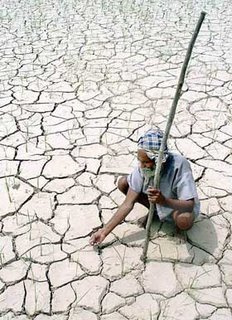“India is pushed back
several steps, losing all gains built assiduously over the years, and in one
stroke NDA has achieved what even previous governments could not by succumbing
to the pressure of developed countries”. This seemingly innocuous
reaction from Kenya drew proportions back home when “India reflected its
disappointment” in not able to seek the “reaffirmations” on the Doha
Development Agenda (DDA) in the Nairobi Ministerial Declarations (NMD) at the
recently concluded Tenth Ministerial Conference of the WTO, held in Nairobi,
Kenya.
The
reaffirmations were to seek parity in trade anomalies specially addressing the
challenges on protecting Agriculture Subsidies under the Special Safeguard
Mechanism (SSM) and initiatives towards Public Stockholding Programs much
needed to align India India India Nairobi
The NMD
discussed over an extended period of time initially saw groupings of African countries,
India, China, Venezuela and South Africa to issue joint statements
“reaffirming” their positions on Doha Development Declarations and Decisions,
backing with the firm intent and commitment” to give effect to them. However
despite strong interventions being proposed by India, the “failure” to actually
intervene even at the cost of “rejecting the draft” as done by then Minister of
Commerce, Kamal Nath in 2004, where India minced no words in calling the
proposed draft, “ Pro US and detrimental to the interest of farmers in
developing countries”. However in the end the blocks of US and EU were
successful in achieving what they never could from previous WTO Trade
negotiations by burying Doha Development Agenda (DDA) forever in recent
Ministerial Conference at Nairobi
There indeed
was a concerted attempt by developed countries blaming India Nairobi India
The Nairobi
Ministerial Declaration in its present form only makes for a passing reference
under Para ’s 31 to 34 in “recognizing” and setting new “approaches
to achieve meaningful outcomes, through multilateral negotiations”. It
further just ensures, “ a strong commitment” to advance negotiations, on the
three pillars of agriculture, namely domestic support, market access and export
competition, as well as non agriculture market access, services development,
TRIPs and the rules”. It though surreally acknowledges that there was no
attempt to bring in the “consensus” a severe departure from the Doha
The implications of
now having buried the Doha Agenda Framework of 2001 and its non inclusion in
the Nairobi Declaration of 2015, the developing countries including India
The small land
holdings of our farmers, subsistence of poor dependent upon these subsidies
would now be stringently measured. India could even loose the right to
subjectively intervene in Free Trade Agreements (FTA’s) which shall be thrusted
creating an asymmetry of trade negotiating boundaries with the sole focus on
Trade Facilitation Agreements (TFA’s) opening up the emerging “developing”
markets and in turn exposing even our “small marginal farmers with limited
landholdings” to the gyrations of global trade governance dynamics.
The
introduction of “New issues” or “Singapore issues carried over from Cancun
Ministerial Conference 2003 related to Investment, Competition, Government
Procurement and Market Access through interlinked E-Commerce at 10th
Ministerial at Nairobi further limits the participation by countries like India
in raising & resolving trade blocks and Doha issues in future. The
acceptance of these “new issues” sooner would compel us to move into an un-sheltered
territory where over arching imposing demands like pressing for the principle
of “national treatment” by developed countries in name of trade balance would
prevail at the cost of domestic protection polices, cheaper imports, market
interventions for subsidized agriculture commodities by global players at
expense of needed encouragement of competent local policies fostering trade
competitiveness, retaining our food sustainability and commercial safeguards,
which is a pivot focal of emerging economy like India
The Modi government
now bears the weight of having missed on an opportunity pushing India Nairobi
Abhishek Joshi
(The writer is New Delhi-based Rural Researcher
and Policy analyst)
